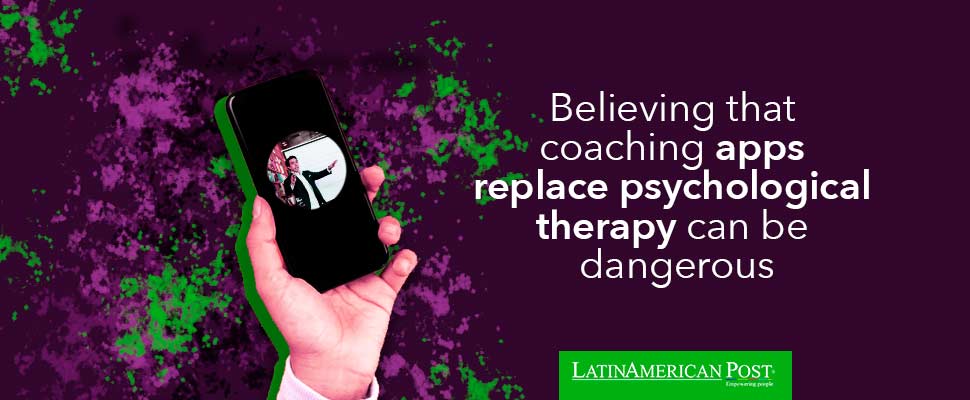Opinion: How Effective Are Coaching Apps?
Although These Apps Can Be Useful To Some Extent, It Is Worth Asking If They Can Replace Professional Therapy.

Believing that coaching apps are a substitute for psychological therapy can be dangerous. Photo: LatinAmerican Post
LatinAmerican Post | Vanesa López Romero
Listen to this article
Leer en español: Opinión: ¿Qué tan efectivas son las apps de coaching?
In recent years there has been more social acceptance of mental illness, its validation and its treatment. In turn, life-coaching apps have become popular, especially with the arrival of the COVID-19 pandemic, which, due to long and massive quarantines, generated an increase in anxiety, depression and relationship problems. Therapies became virtual and apps and tools were developed for both doctors and patients in order to facilitate virtual encounters.
Can they substitute therapy?
However, many of these apps have a clear characteristic: although they have functions that help users with their daily lives, they are not specialized and are not a substitute for professional consultation or therapeutic process. These are known as life coaching apps, and they basically consist of personal development through habits that enhance social, personal and even work skills.
Although they can be used as tools that complement a therapeutic process, unless there is a constant relationship with a professional and trusted person, the professional cannot be substituted. Algorithms and programming cannot react to a crisis. The task of a therapist is not to solve the problems of his patient, but to give him the tools and the safe spaces so that he himself can find the solutions to the problems that can be solved and learn to understand and accept those that have no solution.
You may also be interested in: How Can Mindfulness Help the Lives Of Children?
Apps do not provide the closeness or the feeling of human support that you get from theraphy. It should be noted that therapy with a professional is not always the best option. For decades there has been a mistrust towards medical personnel and towards psychological and psychiatric therapies due to the devaluation that usually occurs in these spaces. The truth is that finding a consistent therapy that shows results is a matter of persistence and luck.
But in the long run, being guided exclusively by these types of apps can even be dangerous. If symptoms of a mental illness appear, it is extremely necessary to go to an expert and treat the matter as responsibly as possible. Making a comparison with physical health, there are applications to improve physical development, even to monitor the heart rate, etc., but there is no app that can replace a medical consultation, much less one that can replace physical therapy.
Coaching can slip into toxic positivity
Regarding this, it is also necessary to mention that in many cases coaching is associated with a worldview that can be toxic. We are talking about an idea of positivity that puts happiness at the top of the hill without understanding that this is not something that can be achieved, but something that comes and goes, and that in reality you should aspire to is stability to know how to overcome the difficult moments. "You attract what you want." say these toxic positive people.
Things don't just attract each other. This idea can generate confusion in people who seek to face their problems and in turn, it can be dangerous for a person who has ups and downs or a mental illness.
Going to a professional, either in person or online, is of the utmost importance. Likewise, checking whether the apps that are used as complementary tools are adequate is something that cannot be ignored.




